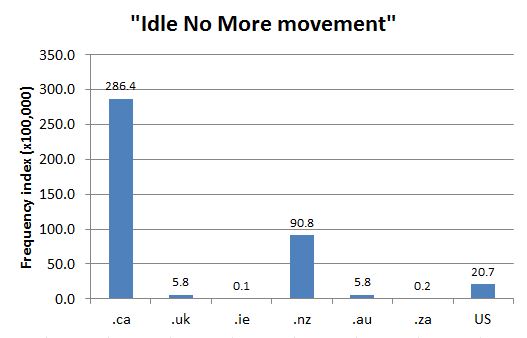DCHP-2
Idle No More DCHP-2 (October 2016)
n. — Aboriginal, especially First Nations
a movement for indigenous sovereignty and land conservation.
Type: 1. Origin — Idle No More was initially organized as a teach-in by four women (see the second 2013 quotation and Idle No More reference). The movement rapidly gained momentum with the help of social media and newsmedia, giving the term national recognition . On December 11, 2012, Attawapiskat chief Theresa Spence launched a 44-day hunger strike in an attempt to secure a meeting with Prime Minister Stephen Harper (see the third 2012 quotation). Harper ultimately agreed to a meeting, but on terms that were deemed inappropriate by Spence and other Assembly of First Nations leaders. Chief Spence's hunger strike garnered widespread attention from Canadian newsmedia (see CTV News reference). Idle No More has spread to various locations, including the United States (see, e.g. the first 2012 quotation) and New Zealand, where some Maori groups have adopted the term. However, Idle No More remains most prevalent in Canada (see Chart 1).See also: Assembly of First Nations Oka ((2))
References:
- CTV News "Chief Spence out of hospital after ending 6-week hunger strike" Accessed 16 Apr. 2016
- Idle No More "The Story" Accessed 6 Aug. 2013
Images:
Chart 1: Internet Domain Search, 28 May 2013
